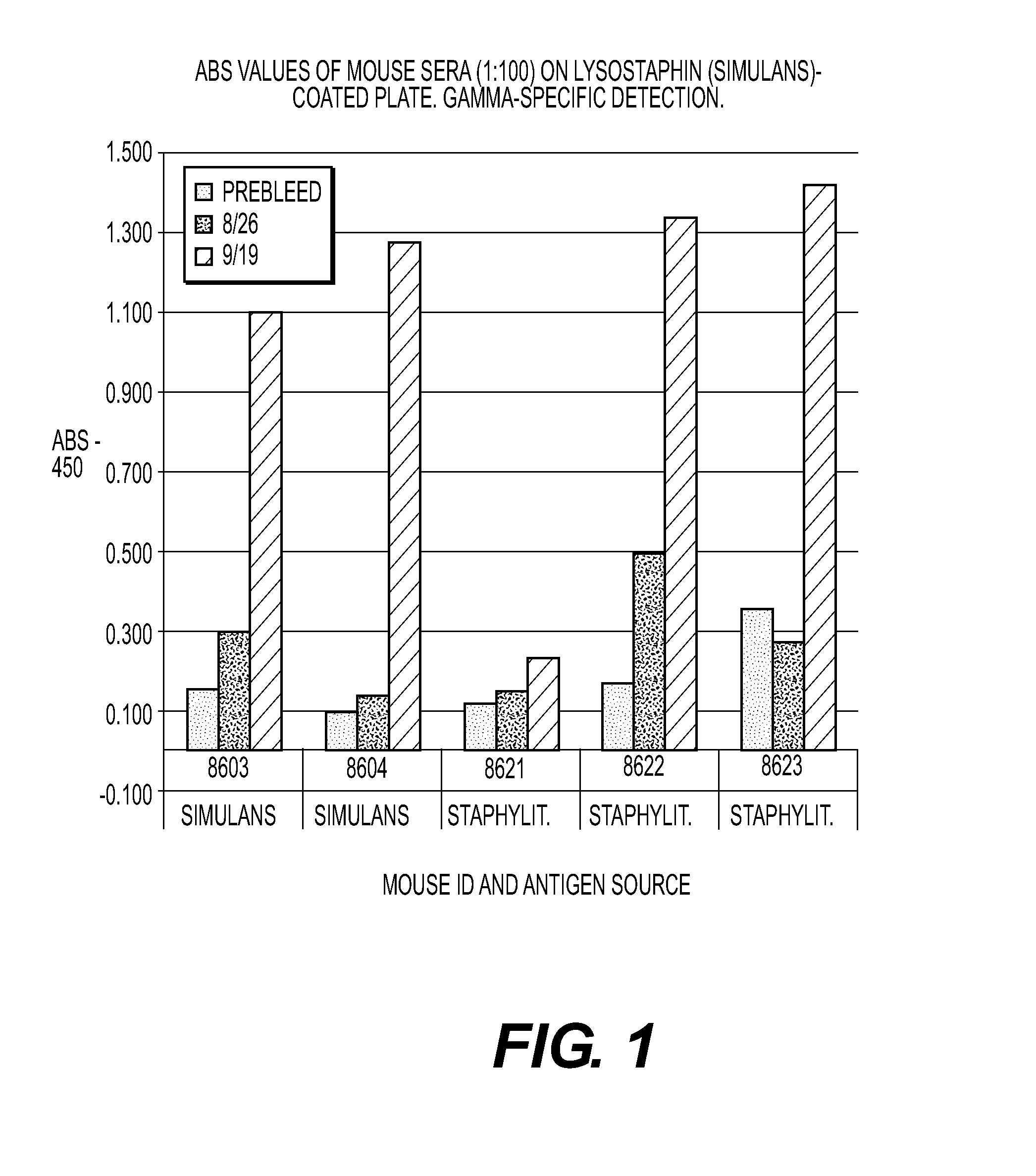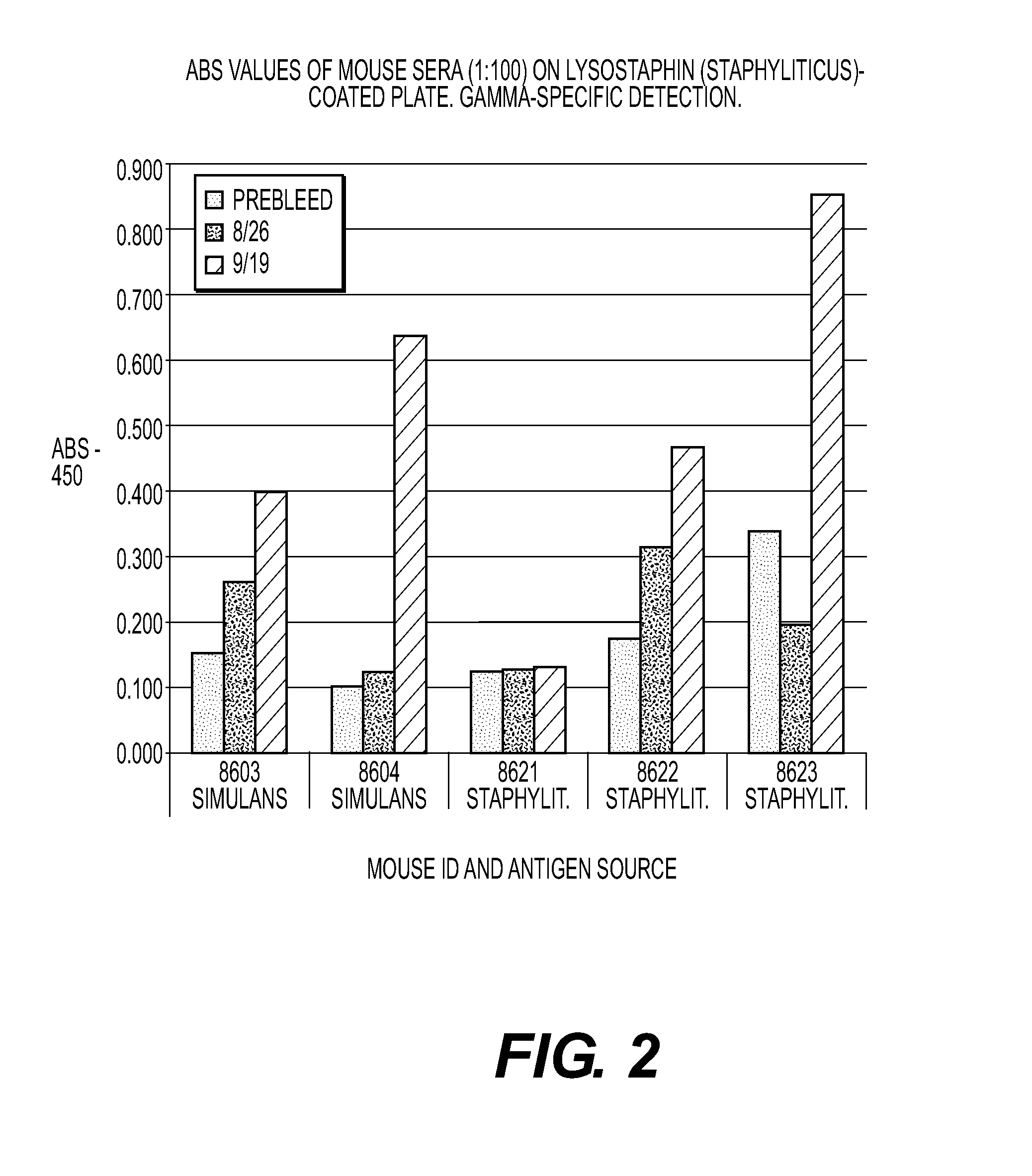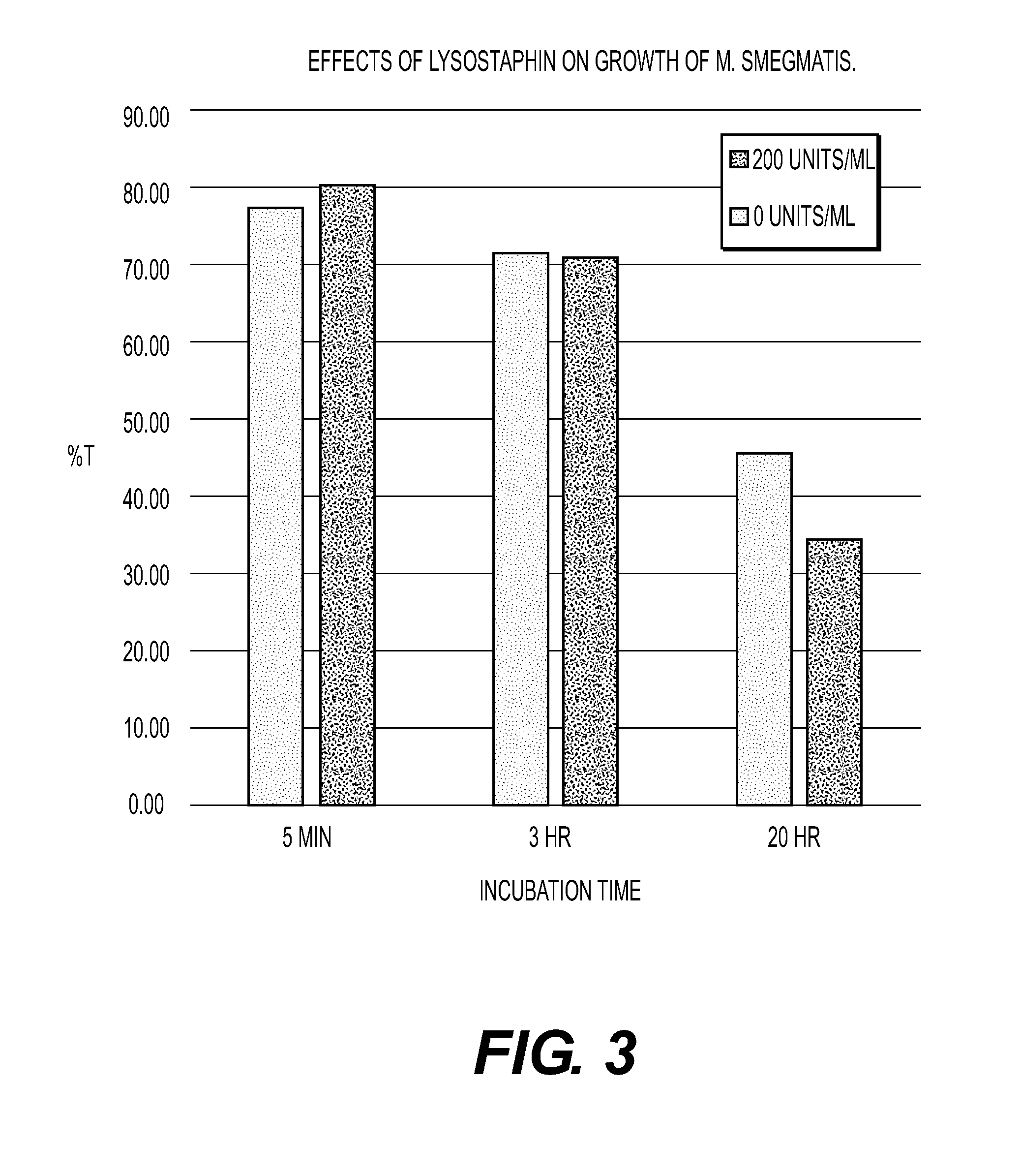Multimodal Antimicrobial Therapy
a multi-modal, antimicrobial technology, applied in the direction of prosthesis, peptide/protein ingredients, catheters, etc., can solve the problems of difficult treatment, many antibiotics that are effective for treating sa infections do not work well for treating mtb, and diabetes and premature infants are also highly susceptibl
- Summary
- Abstract
- Description
- Claims
- Application Information
AI Technical Summary
Benefits of technology
Problems solved by technology
Method used
Image
Examples
example 1
[0042]In this assay, ethanol-killed MTB were added to duplicate wells at dilutions of 1:2, 1:4 and 1:8 in PBS. One well of each pair received 100 μl of PBS and the other well received 100 μl of recombinant lysostaphin at 750 μg / ml (final concentration=375 μg / ml of recombinant simulans lysostaphin produced in E. coli). The % T was determined after 3 minutes, 10 minutes and 20 minutes.
TABLE 2Treatment of EtOH-Fixed TB with 375μg / ml of Recombinant LysostaphinBacterial% T at 3 min% T at 10 min% T at 20 minDilutionPBS375 μg / mlPBS375 μg / mlPBS375 μg / ml1:260.69586.26841.0291.5949.91792.5871:468.71595.35657.8377.3360.24992.6511:879.55297.30864.3198.0378.04698.186
[0043]In all cases (i.e., at all dilutions of bacteria) the % T increased in the groups receiving lysostaphin, indicating that the enzyme was disrupting the bacterial cell wall. This demonstrates that slow growing, dormant or even dead MTB can be lysed and destroyed by lysostaphin. The MTB cell wall glycines are positioned such that ...
example 2
[0044]Two lysostaphin products are injected into mice (one produced in S. simulans, subspecies S. staphylolyticus {natural}, and one produced in E. coli designated S. simulans {recombinant}). As lysostaphin is an immunogenic protein, when injected (into people or animals) antibodies are generated that may cause side effects after previous exposure. Anti-lysostaphin antibodies are produced in the serum by both products. Despite the fact that both products induced similar anti-lysostaphin antibodies, the antibodies induced by both products had markedly higher binding to recombinant lysostaphin compared to non-recombinant lysostaphin. One animal in the non-recombinant lyso-group produced almost no antibody response. Surprisingly, these data demonstrate that the method of production can provide a lysostaphin molecule that has increased binding to anti-lysostaphin antibodies. The recombinant lysostaphin is more reactogenic and more potent than conventionally produced lysostaphin. Thus, t...
example 3
[0045]Assay of mouse sera on plates coated with lysostaphin from simulans expressed as recombinant in E. coli and coated with natural lysostaphin from S. staphylolyticus. Mice received a primary immunization (subcutaneous) with 10 μg recombinant lysostaphin from E. coli (Sigma-Aldrich) (animal numbers 8603, 8604) or 10 μg of natural lysostaphin from S. staphylolyticus (Sigma-Aldrich) (animal numbers 8621-8623). Primary immunization was administered and boosted about three weeks later. No adjuvant was used for the immunizations.
[0046]Serum samples were tested using gamma-specific detection (FIGS. 1 and 2). Bars represent binding seen with normal serum (first bar), serum after the first injection (second bar), and serum after the boost injection three weeks later (third and in most cases largest bar). The results on wells coated with simulans lysostaphin (FIG. 1) were stronger than the results on wells coated with staphylolyticus lysostaphin (FIG. 2), regardless of the immunogen. Mous...
PUM
| Property | Measurement | Unit |
|---|---|---|
| particle size | aaaaa | aaaaa |
| periods of time | aaaaa | aaaaa |
| periods of time | aaaaa | aaaaa |
Abstract
Description
Claims
Application Information
 Login to View More
Login to View More - R&D
- Intellectual Property
- Life Sciences
- Materials
- Tech Scout
- Unparalleled Data Quality
- Higher Quality Content
- 60% Fewer Hallucinations
Browse by: Latest US Patents, China's latest patents, Technical Efficacy Thesaurus, Application Domain, Technology Topic, Popular Technical Reports.
© 2025 PatSnap. All rights reserved.Legal|Privacy policy|Modern Slavery Act Transparency Statement|Sitemap|About US| Contact US: help@patsnap.com



